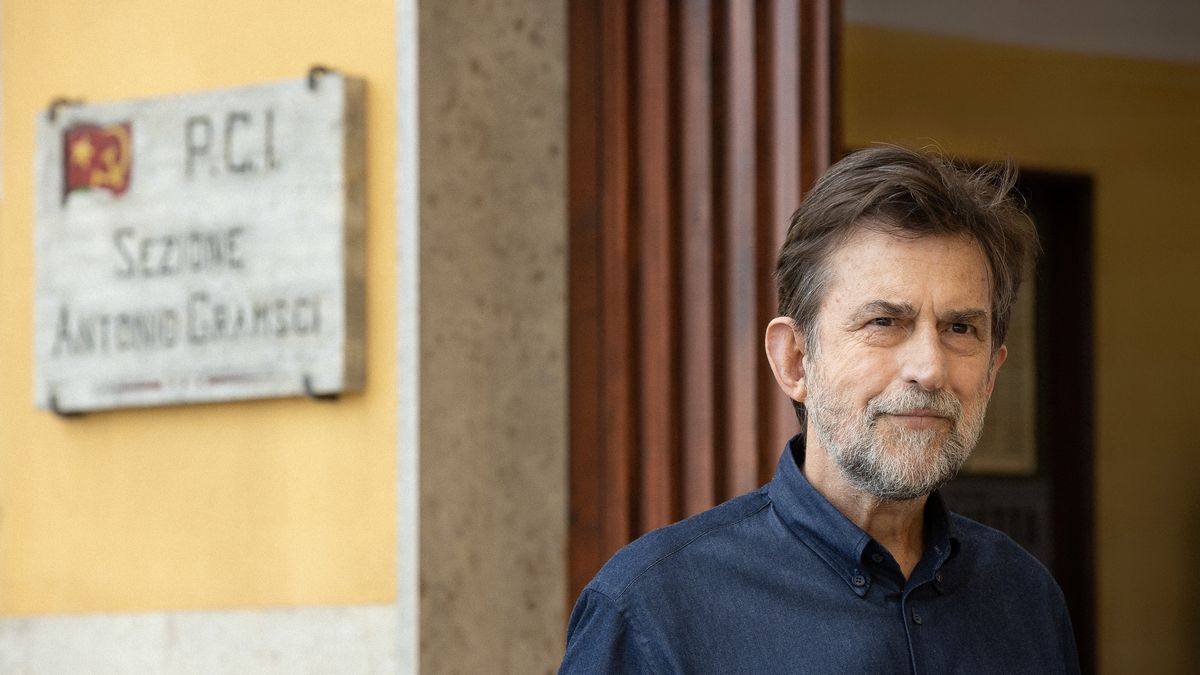In his new film, Nanni Moretti celebrates both the apology and the funeral of lost causes: among them the Italian left (or the left in general, in a world where every man for himself is installed with increasing force); the enduring marriage; and of course the cinema, that quasi-artisanal cinema that he has cultivated since “Caro Diario” (1993, his most famous title from the initial stage, although not the first), a cinema that It refuses to give in to the algorithms or “narrative arcs” demanded by Netflix.
Morettistill a darling of the world’s festivals, can do it, while many of his colleagues either remained on the sidelines (those expelled from the system, as in so many other areas besides cinema), or bowed their heads before the superheroes of Marvel or the production of “marathonable” series. Those of algorithms and narrative arcs.
To the list of those lost causes that pass through the film we can add memory, tradition and intergenerational dialogue, linked to that violent break with the past that produced the entry into the new century, and that already after its first quarter has passed. becomes clearly irreversible: hence the original title “Il sol dell’avvenire”, the sun of the future, hides an irony (acceptably captured by the local version, “The best is yet to come”); that sun is the night for all those causes that he defended Morettilike so many of his generation, throughout life.
However, contrary to what the above would imply, “The best is yet to come” He lacks the pessimism of many of his previous titles, and—perhaps, thanks to his creative maturity, or his age—he prefers to process this discomfort not through acceptance, much less resignation, but through a joy that has to do with art itself, and only with art, a bit in the manner of Fellini (whom he quotes more than once implicitly). “Non ci resta che l’arte”, he would say in his language. We only have art left.
The scene in which all the characters, unexpectedly, put aside the approaching tragedy to, instead, dance and sing in a choral manner (with evident resonances of “Eight and a half”) is one of the most beautiful that Moretti has filmed; Also, one of the most emotional. Another, whose outcome led directly to death, is resolved and modified as we hear him quote Italo Calvino: “Let us remember that Pavese committed suicide so that none of us would do the same.”
“The best is yet to come” It is part of the line of “cinema within cinema”, but not with that childish, repeated narcissism of someone who discovers gunpowder (let us remember that since classical antiquity, art “reflects” on itself); here it is done in the manner of a confession that must be very much autobiographical. In short, it is the root of cinema Morettiwhich he later put aside somewhat and which he now joyfully returns to.
His character, Giovanni, is a film director, and he is filming a film that runs out halfway without a budget; of course, the interview with Netflix executives (hilarious), managed by his assistant producer (Mathieu Amalric) in order to save it, leads to a foreseeable failure: His film does not comply with either the algorithm or the narrative arc claimed by the platform’s executives.which reaches—they repeatedly insist—to 190 countries.
In the fiction of that film, set in the times of the Hungarian revolution of 1956 and the consequent Soviet invasion, the fidelity to the PCI of Ennio (Silvio Orlando)director of the communist newspaper “L’Unità”, when the troupe of a Hungarian circus that has been taken to an Italian town declares rebellion, and asks for refuge. Ennio, sunk in anguish, awaits the decision of Palmiro Togliatti, head of the party, while most of his comrades, starting with his partner Vera (Barbora Bobulova) repudiates the invasion of the USSR and proposes a break with the Soviet Union. Trotskyist break, from now on.
We will not advance with other details of the plot, especially those that have to do with Giovanni/Moretti’s conflicts as an artist, father and husband, but we will stop at one of the most splendid scenes of the film (great script find), and whose “cinephile” reference has practically gone unnoticed by most of the reviews in the world of this film, whose premiere was exactly a year ago, at Cannes 2023: the very brief pool scene.
There you see him Moretti do several lengths, while telling his filming assistants (who are waiting for him at the edge of the pool): “I can’t afford to write a movie every five years. I’m already writing the script for the next one: it will be about a Cheever story, the story of a man who returns to his house by swimming through his neighbors’ pools. “A journey in time and not in space”.
But no one understands the time thing. “It’s about space, not time: we need many swimming pools”, they answer. Nobody, among all those young film people, notices that he is talking about “The Swimmer”, the film by Frank Perry and Sidney Pollack with Burt Lancasterfrom 1968. A problem of time, of generations, of lack of communication. “I should have done it much sooner”adds Morettileaving everyone intrigued.
Something similar happens when you try to watch, on the television at home, “Lola”, the debut feature by Jacques Demy with Anouk Aiméealong with his daughter and his wife (Margherita Buy), who is a film producer. The daughter is concerned about another matter (which will make the viewer burst into laughter when he discovers it), and the woman continues to worry about the first film that she does not produce for her husband: now she is with the Koreans and the violent and easy cinema, between other issues.
The sun of a future that Moretti imagined otherwise.
“The best is yet to come” (“Il sol dell’avvenire”, Italy, 2023. Dir.: Nanni Moretti, Int.: Nani Moretti, Margherita Buy, Silvio Orlando.
Source: Ambito
I am an author and journalist who has worked in the entertainment industry for over a decade. I currently work as a news editor at a major news website, and my focus is on covering the latest trends in entertainment. I also write occasional pieces for other outlets, and have authored two books about the entertainment industry.




